Some Certifications
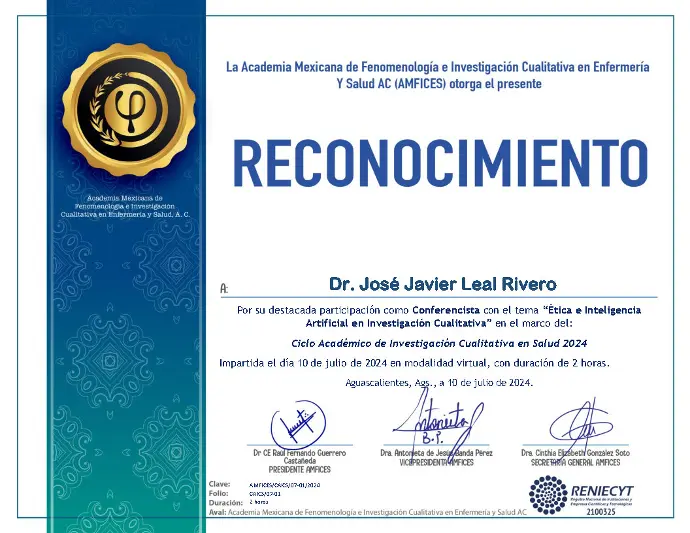
International Master Conference
Artificial intelligence (AI) is transforming all fields of research, including qualitative research in health and nursing. However, this transformation is accompanied by important ethical considerations that we must address with rigor and responsibility.
Conference Objectives
1. Explore the impact of AI on qualitative research.
2. Identify and discuss the main ethical issues related to the use of AI.
3. Propose recommendations for ethical practice in the use of AI in qualitative research.

Google Analytics Individual Qualification
It is a valid certification that covers basic and advanced Google Analytics concepts, including topics such as: planning, principles, implementation, data collection, configuration, administration, conversion, attribution, reporting, metrics and dimensions.

Technical Diploma in Business Intelligence
is composed of three modules divided into several courses, which include the following:
- Process Evaluator
- BI Project Analyst
- Business Analytics Technician
- Data mining technician
- Data viewer
- IT Technical Analyst
- Key Performance Indicator (KPI) Evaluator
- BI solutions integrator

Machine Learning with R
This Machine Learning with R course delves into the basics of machine learning using an accessible and familiar programming language. It covers supervised and unsupervised learning, discusses how statistical modeling relates to machine learning, and makes a comparison of each.

Python for Data Science
The course covers the following topics:
-Introduction and installation of Python
-Variables and data types in Python
- Operators in Python
- Python strings
- Python tuple
- Python List
- Python Dictionary
- Set in Python
- If statement
- Loop statements in Python
- User-defined functions
- Object-oriented programming in Python
- NumPy library in Python
- Pandas in Python
- Matplotlib and Python.

SQL for Data Science
This course presents salient SQL operations for performing data science tasks, with some examples demonstrated. The course begins by discussing clauses in SQL and continues with other statements such as GROUP BY, ALIAS, JOINS and their types, i.e., INNER JOIN, LEFT JOIN, RIGHT JOIN, FULL JOIN and SELF JOIN.
It also covers subqueries, their types and execution, after which you understand the concepts of Python with SQL and its popularity.

Project Management
In this Project Management course, you will explore key topics such as Introduction to Project Management, understanding the phases of a project from Inception to Closure, and delve into the Components of Project Management. You will discover the importance of setting clear objectives and the many benefits of effective project management.
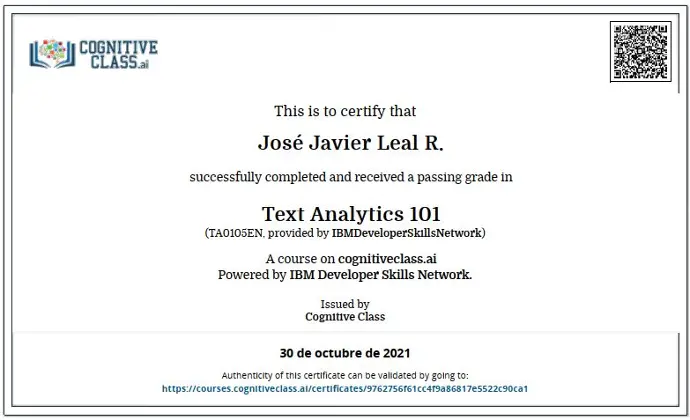
IBM-Text Analytics 101
This course teaches about information extraction: how to extract structured data from text in order to obtain valuable information. Learn about the applications of information extraction in various domains, such as social networks, health analytics and financial risk analysis. Explore common text analytics tasks, such as entity, relationship and event extraction, as well as sentiment analysis. Finally, delve into "Declarative Information Extraction", a powerful method for performing high-performance, high-quality text analysis, and gain hands-on experience developing your own extractors.
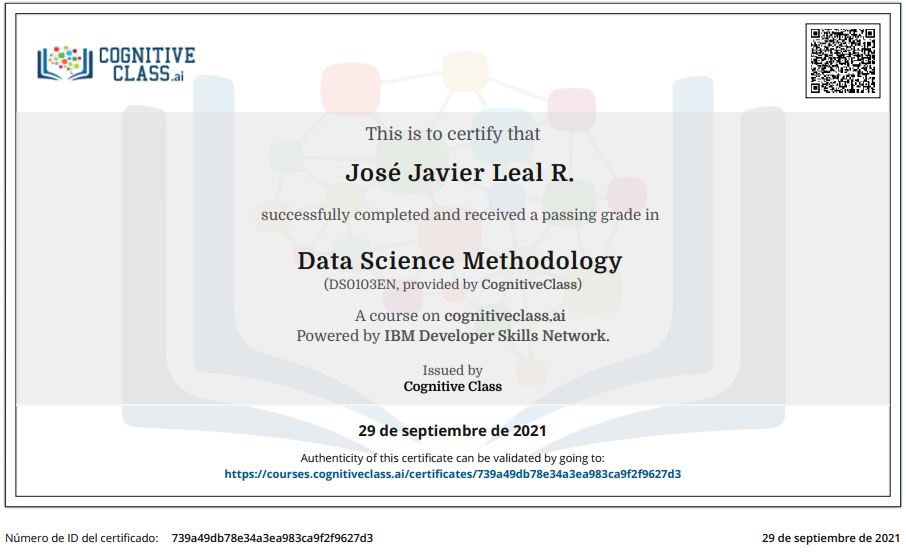
IBM-Data Science Methodology
This course is intended to share a methodology that can be used within data science to ensure that the data used in problem solving is relevant and properly manipulated.
Learning objectives
-Steps involved in approaching a data science problem.
-Steps involved in the practice of data science, from forming a concrete business or research problem, to collecting and analyzing data, to building a model, and understanding feedback after model implementation.
-How data scientists think.
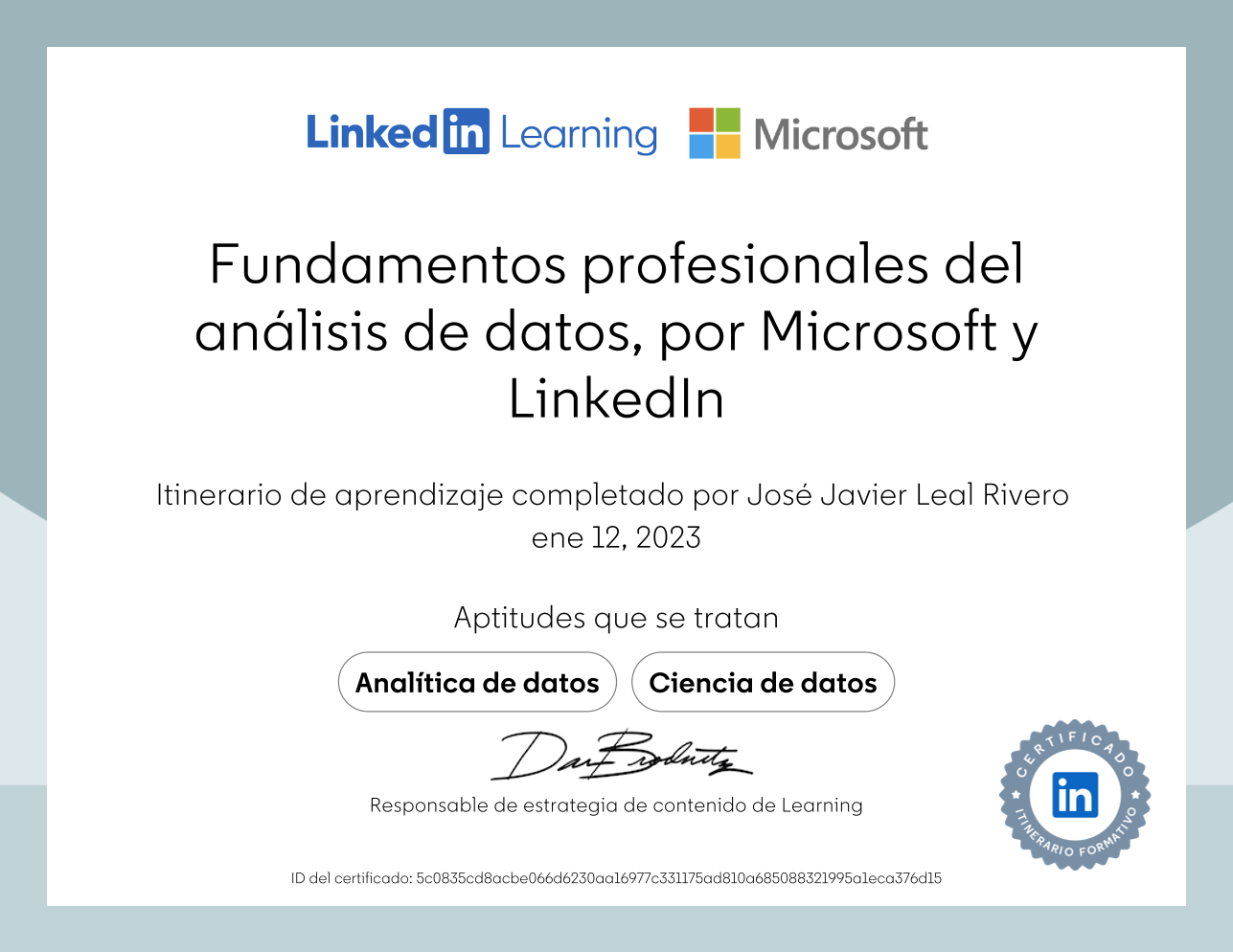
Professional Fundamentals of Data Analysis: Microsoft and Linkedin
It focuses primarily on the area of business intelligence, data-driven decision making, methods of data collection, discovery and interpretation, as well as ways to structure, evaluate and transform data using the basic functions of Excel and Power BI.
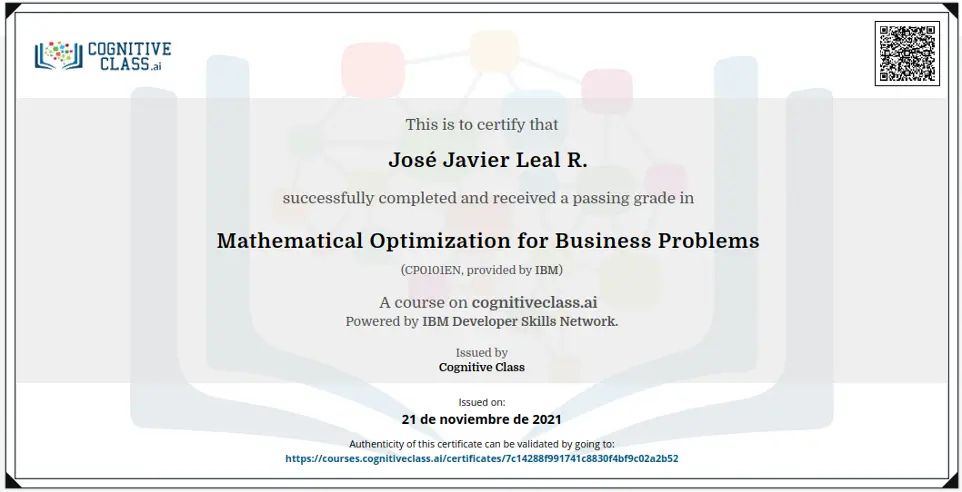
IBM-Mathematical Optimization for Business Problems
This training provides the necessary fundamentals of mathematical programming and useful tips for good modeling practice to build simple optimization models.
LEARNING OBJECTIVES
Learn more about building optimization models using IBM Decision Optimization technology, including:
- Basic terminology: operations research, mathematical optimization and mathematical programming.
- Basic elements of optimization models: data, decision variables, objective functions and constraints.
- Different types of solutions: feasible, optimal, infeasible and unbounded.
- Different types of solutions: feasible, optimal, infeasible and unbounded.Different types of solutions: feasible, optimal, infeasible and unbounded.
- Algorithms used to solve continuous linear programming problems: simplex, dual simplex and barrier.
- Important mathematical programming concepts: sparsity, uncertainty, periodicity, network structure, convexity, piecewise linear and nonlinear.
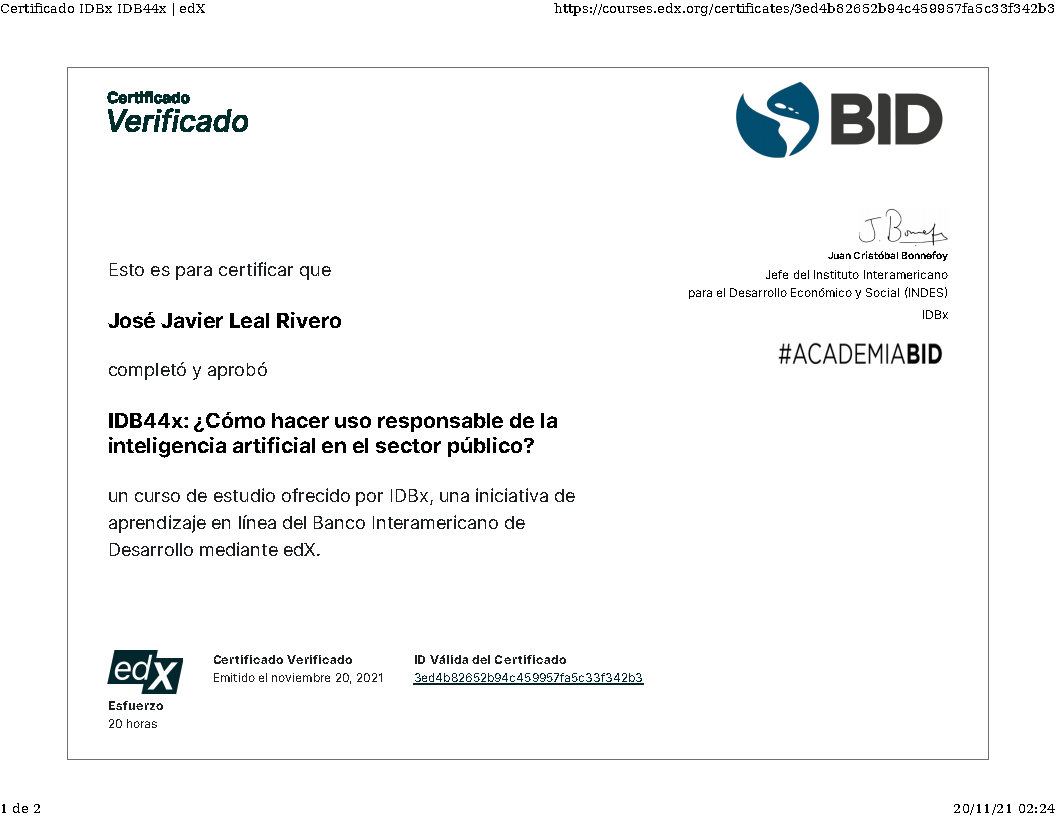
BID - How to make responsible use of Artificial Intelligence in the Public Sector?
The course is aimed at public officials, private sector, technicians, researchers, teachers, students and all those involved in the processes of conceptualization, design and implementation of an artificial intelligence system for decision making in the public sector.
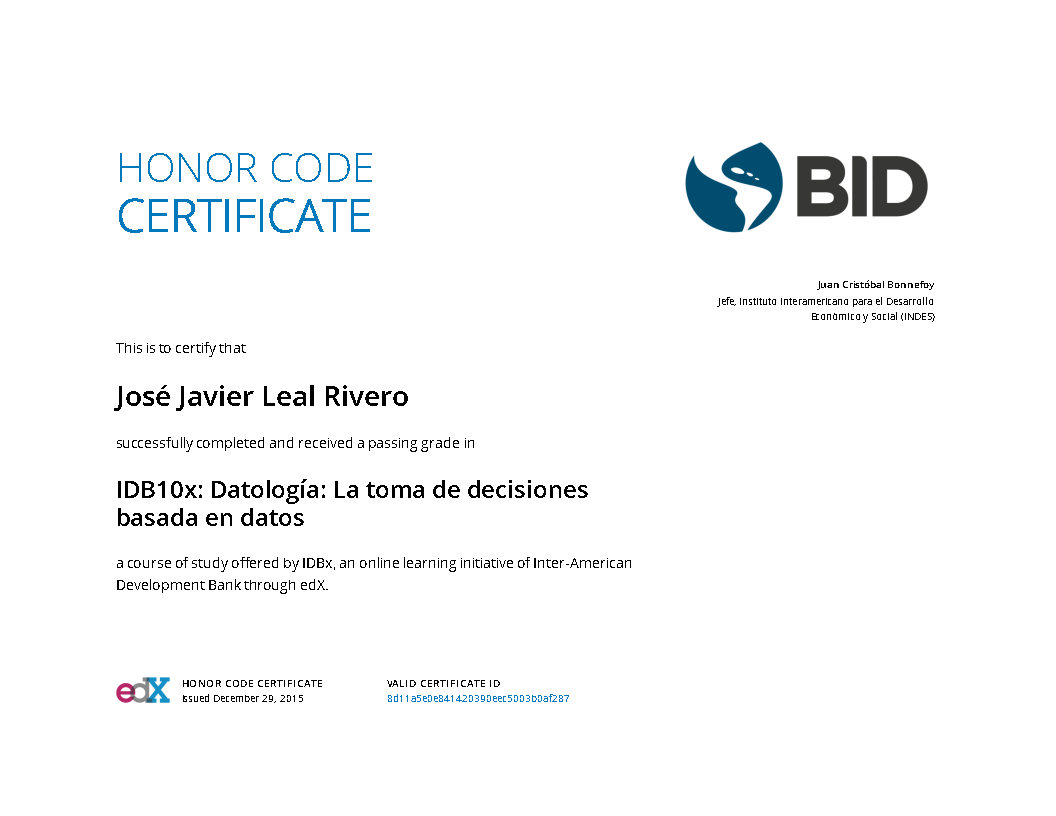
BID - Datology: Data-driven decision making
The course focuses on strengthening the ability to understand and interpret data to improve the strategic decision making process.
Through various activities and the use of the IDB's open data portal,“Numbers for Development”. In this program, participants apply their knowledge to real cases. They promote the analysis of the realities to which public officials in Latin America and the Caribbean are exposed.